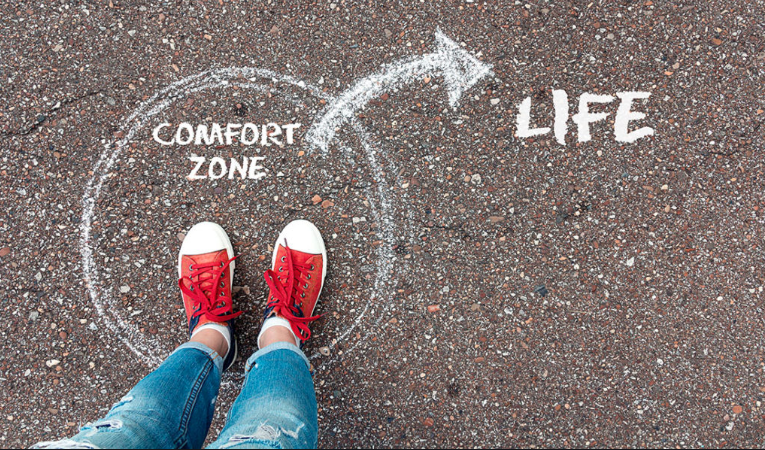Getting Comfortable with the Uncomfortable
by
Confronting your own internalized racism.
Admitting to your partner you’ve had an affair.
Checking into rehab after driving drunk with your child in the car.
These are the gut-wrenching “bottoms” that bring us to our knees. The life-changing moments that force us to surrender to our imperfections and admit that we don’t, in fact, have it all figured out. And ~ even worse ~ that our own “stuff” has actually caused harm to someone else. These are the moments we stare reality in the eyes and see that, despite aiming to be a good person, our actions have felt very bad to others.
If ever you’ve had a moment like this, then you know they are not for the faint of heart. They can feel soul-crushing, setting into motion massive amounts of shame, regret, embarrassment, and discomfort as we confront the “bad” that overshadows our inherent longing to be “good.” They can light up negative beliefs, such as “I’m a terrible person” or “I deserve to be punished,” and compel us to look away, defend, and/or become the victim in an effort to escape the awfulness we are feeling.
There is a cruel irony in the duality of feeling both motivated by a desire to do and be better, yet paralyzed by the shame of facing the damage we’ve caused. In becoming so consumed with our own humiliation and grief, we can lose sight of the wounded in front of us who are hurting because of our actions (or inactions). We can no longer hold a space for their pain because our own pain is taking up every inch of emotional real estate. We can no longer hear their stories because our own internal critical voice has become so loud. It is in this fragility and shame spiral that we lose the ability to truly listen, learn, and repair. And it is this loss of ability to regulate our own internal process that sets us up to re-injure once again, despite the best of intentions.
To better understand how we can regulate the emotional tsunami of shame and vulnerability, I look to the brilliant and witty guru ~ Dr. Brené Brown ~ for guidance and wisdom. In March 2020, during COVID-19 but before the anti-racism movement really took hold, Brené launched an amazing new podcast called “Unlocking Us.” The inaugural episode, “Brené on FFTs,” is the perfect message we all need to hear as we venture into brave and uncomfortable spaces of effectively owning our shame and vulnerability in such a way that frees us up to do the transformative work that comes with being human.
For those of you who don’t know, FFTs are F***ing First Times. This is Brené’s endearing term for those new experiences where your once wise and confident Self has been reduced to an “awkward rookie” who doesn’t know what to do or how to do it ‘right.’ Your attempts at something new come with a high probability of stumbling, being embarrassed, or making mistakes (and who wants that?!?!). These are the moments in life that no amount of smarts, good deeds, or golden intentions can save you from. Whether it’s something small and relatively inconsequential like trying a new recipe or something gigantically important like becoming an anti-racist, FFTs are inherently laced with triggering emotions, like uncertainty and doubt.
Brené offers 3 concrete strategies for how to navigate FFTs so that you courageously stand tall in the midst of uncertainty, rather than crumble under the weight of a debilitating shame spiral that renders you paralyzed or defended. First, you have to recognize that you’re in an FFT. By simply acknowledging and owning that you’re experiencing something new, you begin to normalize the uncertainty and anxiety you’re likely feeling. Second, put your feelings into perspective by reminding yourself this experience won’t be new forever and you won’t be awkward forever. You’ll never do this for the first time again, and one day you won’t be a fumbling rookie. Third, maintain realistic expectations of what this FFT will feel like. For a bit of time, this will feel uncomfortable and you’re not going to get it right. By expecting to feel this way, you can relax into these less-than-ideal feelings.
Brené’s 3-step process for navigating emotionally-provoking FFTs gives a road map for how to “embrace the suck” and get comfortable with the uncomfortable. Caring for your Self in this way provides the necessary psychological and emotional scaffolding for a process in which you don’t know how it will all turn out…but you risk to try anyway.
Being an outstanding human is not about knowing it all, having it all, or doing it all. It’s about knowing we don’t know it all, seeing our blind spots, righting our wrongs, and courageously committing to the lifelong process of stumbling as we learn how to walk this journey called Life. 🖤







